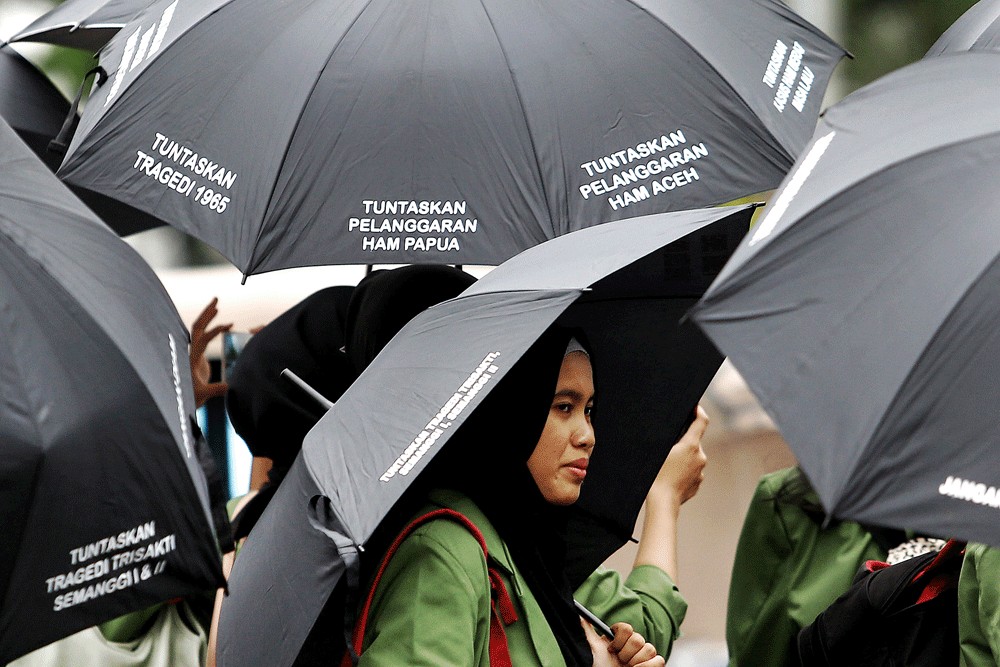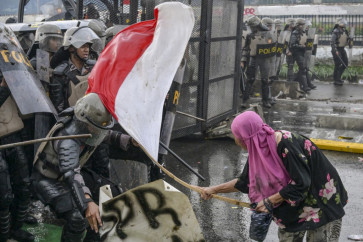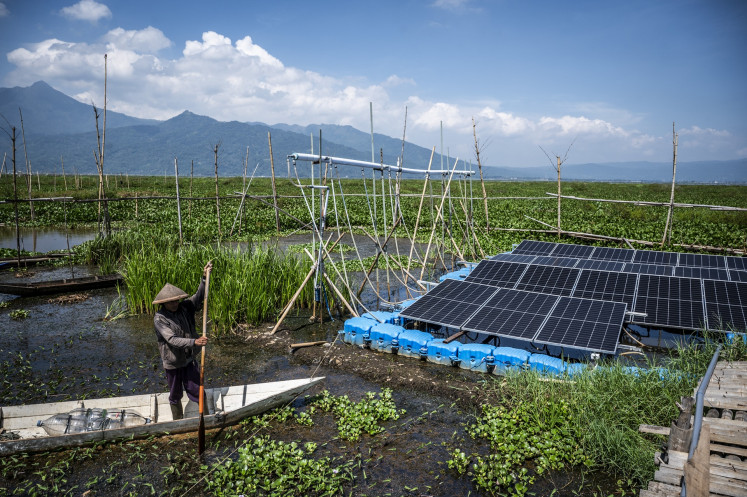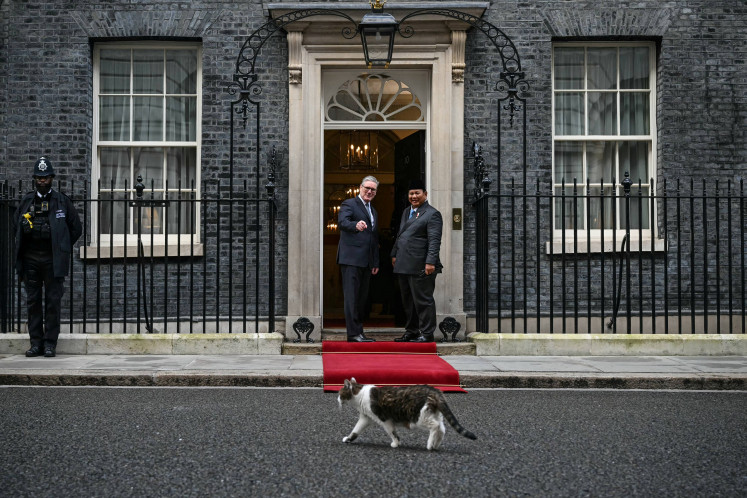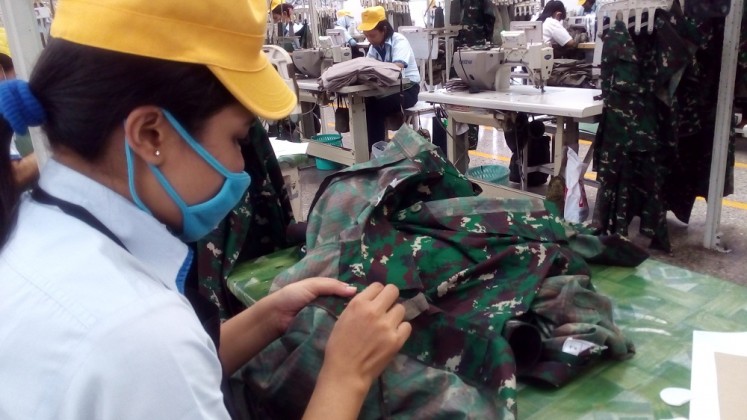Popular Reads
Top Results
Can't find what you're looking for?
View all search resultsPopular Reads
Top Results
Can't find what you're looking for?
View all search resultsNew human rights hopes
Ironically, in a more democratic post-Soeharto Indonesia, the House has been picking mostly tepid commission members.
Change text size
Gift Premium Articles
to Anyone
I
ndonesia’s faltering commitment to human rights in recent years reflects, in part, the flagging work of the National Commission on Human Rights (Komnas HAM). But the appointment of nine new commissioners this month offers a chance for the body to reverse this decline.
This is a big undertaking to say the least. The future of Indonesia’s democracy and many of our freedoms are in their hands.
The nine are not exactly big names in the human rights community, except perhaps for Anis Hidayah, a staunch defender of migrant workers’ rights. The new commissioners also include women’s rights defender Atnike Nova Sigiro and Hari Kurniawan, a disability rights lawyer and himself a disabled person. It looks like the House of Representatives, which selected the nine commissioners from a list of nominees, opted for a wider roster of human rights advocates.
We should not prejudge the commissioners’ work. Let them prove they are worthy of our trust for the next five years.
Komnas HAM had its golden years, ironically, in the twilight of strongman Soeharto’s rule. He set up the commission in 1993 and filled it with the likes of Baharuddin Lopa, Marzuki Darusman, Nurcholish Madjid and others known for their commitment to human rights. The rights situation was so bad in Indonesia at the time that Soeharto needed those names to help shore up his reputation. But any favors they may have done for Soeharto were outweighed by their work shedding light on many of the human rights atrocities committed by his regime that would have otherwise remained buried.
In contrast, in a more democratic post-Soeharto Indonesia, the House has been picking mostly tepid commission members.
But enough reminiscing about the past. The commission has plenty of work to do. It has been sitting on 12 cases considered gross violations of human rights. They include the massacres of communists in 1965-66 and atrocities committed by the Indonesian Military (TNI) in quelling armed insurgencies in Aceh and in Papua. Only one of the cases, the killing of civilians in Paniai, Papua, has been brought before a human rights court. The hearings are still going on.
In August, President Joko “Jokowi” Widodo set up a team to find “non-judicial resolutions” to the 12 cases, but the human rights community suspects the move will simply lead to impunity for the perpetrators. The team’s chair, Makarim Wibisono, confirmed that it would not try to establish the truth or seek apologies and would limit its work to getting “compensation” for the victims.
There is more hope in a separate plan to set up a truth and reconciliation commission to resolve these cases. The bill to establish such a body is being drafted, but it is unclear how soon the law will be enacted, if at all. This is something that the new Komnas HAM members can help speed up.
As happy as we are to see the appointment of Atnike Nova Sigiro as the first woman to chair of the commission, we are concerned about the House’s unprecedented imposition of its will in this process. Breaking with tradition, and apparently with the 1999 law on Komnas HAM, the House not only picked the nine members but also decided who would chair the commission.
The law clearly states that the chair is to be chosen by the nine members once they are installed. Affirmative action is one thing, but breaking the law is another. If anything, this indicates an intrusive House and could spell trouble for the commission’s independence.
We hope to be proven wrong, for the sake of human rights and democracy.

